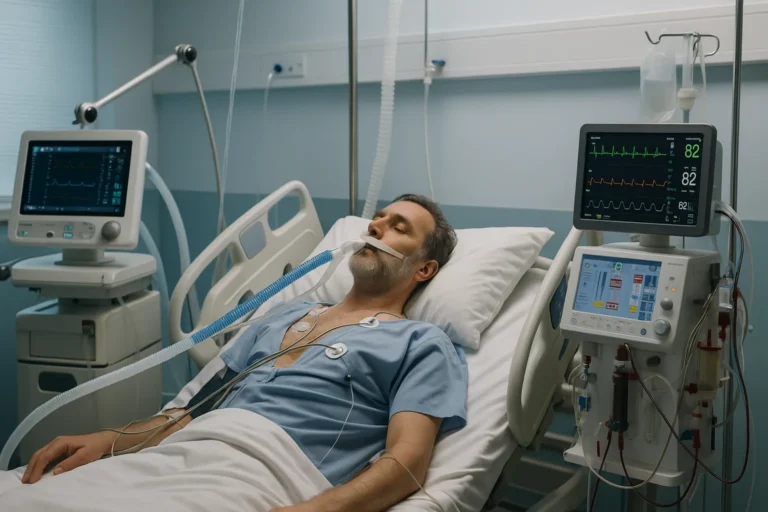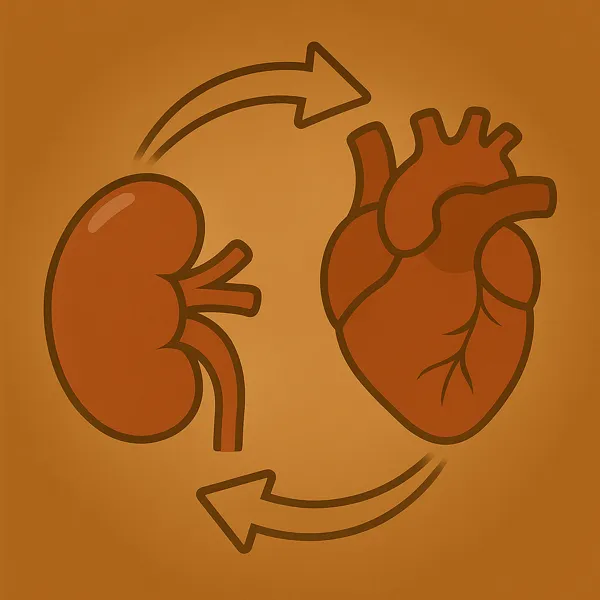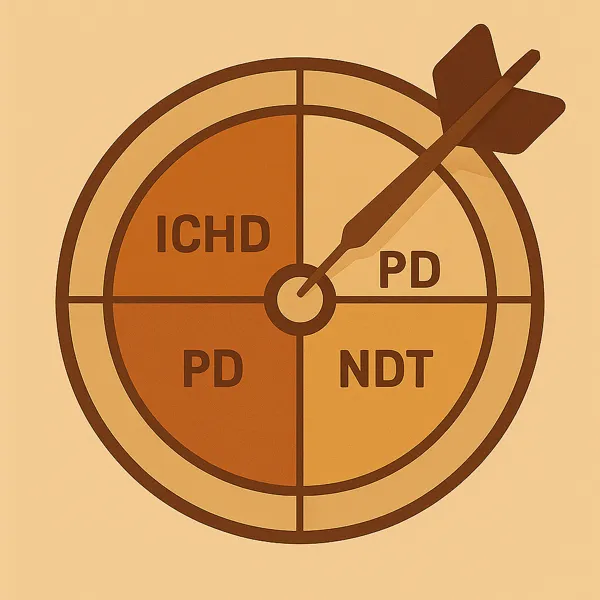Conservative Kidney Care: Just Because You Can, Doesn’t Always Mean You Should
What Is Conservative Kidney Care?
Conservative kidney care is a non-dialysis approach to treating advanced chronic kidney disease (CKD). Instead of using dialysis or pursuing a transplant, this care model focuses on relieving symptoms, maintaining comfort, and aligning treatment with a person’s individual goals and values.
Is it the same as “doing nothing”? Not at all. Conservative kidney care involves active medical oversight. Doctors manage blood pressure, treat anemia, adjust medications, and monitor symptoms to support well-being as kidney function gradually declines. The goal is to maximize quality of life rather than extend life at any cost.
This care pathway is often considered when dialysis is unlikely to improve longevity or may lead to more harm than benefit—such as in very elderly individuals or those with other serious illnesses. It is a valid, medically supported choice for people who prefer to avoid invasive treatment and prioritize comfort and autonomy.
By choosing conservative kidney care, patients aren’t opting out of care—they’re choosing a different kind of care, one that respects the natural course of illness while minimizing suffering and unnecessary interventions.
When Might Conservative Management Be the Right Choice?
Conservative kidney care may be the right choice when the potential benefits of dialysis are uncertain or outweighed by its burdens. This is especially true for individuals with advanced age, significant frailty, or multiple chronic conditions that reduce life expectancy or quality of life.
For example, someone in their late 80s with severe heart disease, limited mobility, or cognitive impairment may face more risks than rewards with dialysis. In such cases, conservative kidney care allows for a gentler, more holistic approach—one that supports symptom control and dignity without the rigors of regular dialysis treatments.

It may also be appropriate for people who prioritize staying at home, avoiding hospital-based procedures, or maintaining independence for as long as possible. Some individuals with terminal illnesses or progressive conditions like advanced cancer, dementia, or end-stage lung disease choose conservative kidney care because it aligns with their broader goals of comfort-focused treatment.
This path is not limited to one age group or diagnosis—it’s based on values, preferences, and clinical context. The decision is often made collaboratively between the patient, their family, and a physician who understands both the medical and emotional weight of the choice.
What matters most is that the person receives care that fits their life—not just their lab values.
What Does Conservative Kidney Care Involve Day to Day?
Conservative kidney care is not passive—it’s a structured plan tailored to help patients feel as well as possible while living with kidney failure. The day-to-day approach emphasizes stability, comfort, and symptom control, even without dialysis.
Patients usually continue regular visits with their nephrologist or primary care provider. These appointments help monitor how kidney disease is progressing and make adjustments to medications, diet, and fluid intake. Blood pressure control is a central part of the plan, along with avoiding drugs that could worsen kidney function or cause dangerous side effects.
Managing symptoms is a key focus of conservative kidney care. This may include:
- Treating anemia with iron or erythropoietin injections
- Using diuretics to manage swelling and shortness of breath
- Adjusting diet to reduce potassium, phosphorus, or fluid buildup
- Prescribing medications to ease nausea, itching, or appetite loss
Importantly, many patients are supported by a palliative care team in addition to their kidney doctor. This team can help address fatigue, sleep disturbances, and emotional challenges like anxiety or fear—common experiences in advanced illness.
At home, daily life can often continue with only modest changes. Activity levels are adjusted based on energy and comfort, and caregivers may step in more as the disease advances. Advance care planning is also encouraged so that each person’s wishes are known and respected.
Ultimately, conservative kidney care aims to reduce suffering and maintain dignity—not just prolong time.
How Long Can Someone Live Without Dialysis?
There’s no one-size-fits-all answer, because life expectancy without dialysis depends on many factors—including how quickly kidney function is declining, the presence of other health problems, and how well symptoms are managed through conservative kidney care.
Some people live for months or even years after choosing not to start dialysis, especially if their decline is gradual and they receive good supportive care. Others may have a more rapid course, particularly if uremic symptoms—such as severe fatigue, nausea, or confusion—begin to appear and worsen despite treatment.
The most important point is that choosing conservative kidney care doesn’t mean giving up. It means recognizing that survival isn’t the only meaningful outcome. For many people, the goal is to feel as well as possible for as long as possible—without the physical strain and logistical burdens of dialysis.
Doctors can help estimate an individual’s likely trajectory based on lab results, symptoms, and comorbidities. These predictions are never exact, but they help families plan and prepare. With careful monitoring and open communication, patients can often remain at home, avoid hospitalizations, and maintain their preferred routines for much of the time they have left.
When the end does approach, conservative care includes support for comfort, dignity, and peace—often through a home-based palliative or hospice team that understands the course of kidney failure.
In short, while timelines are uncertain, the focus of conservative kidney care is always on quality of life, not simply the calendar.
Is Conservative Care the Same as ‘Giving Up’?
Absolutely not. Choosing conservative kidney care is not about giving up—it’s about redefining what meaningful care looks like for each individual. For many patients, it’s an act of strength and clarity to say, “I want treatment that aligns with my values, not just my lab results.”
There’s a common misconception that if a person declines dialysis, they’re abandoning hope or refusing help. But conservative kidney care offers an active, medically guided path that prioritizes comfort, symptom control, and personal goals. It’s not a withdrawal from care—it’s a shift in focus.
In fact, people who choose conservative management often remain deeply engaged in their healthcare. They take medications, follow dietary recommendations, attend clinic visits, and communicate closely with their providers. What they’re opting out of is the physical burden, time commitment, and potential complications of dialysis—not care itself.
For some, this decision brings a sense of relief. It allows space to focus on relationships, personal routines, or spiritual preparation without the disruption of intensive medical procedures. And when the time comes, palliative care teams help manage pain, anxiety, and other symptoms so that the final phase of life is as peaceful and supported as possible.
Making the choice for conservative kidney care is deeply personal. It’s not a surrender—it’s a declaration of what matters most in the time ahead.
The Takeaway: Choosing What Matters Most
At its core, conservative kidney care is about honoring the whole person—not just treating a single organ. It recognizes that dialysis is a powerful option, but not the only path available when kidneys fail. For many, the deeper question isn’t, “What can medicine do for me?” but rather, “What kind of life do I want to live from here forward?”
Choosing conservative management isn’t about ignoring kidney disease. It’s about managing it differently—through medications, careful symptom monitoring, thoughtful dietary changes, and a team of clinicians who focus on comfort, clarity, and connection. It invites patients and families to step back, reflect on their goals, and take an active role in shaping their care.
This path may include palliative care services, home health support, or even hospice care when the time is right. But it always begins with a conversation—a chance to ask questions, explore fears, and learn what’s possible. You’re not alone in making these decisions. Your nephrologist, primary care doctor, and care team can walk with you through every step, no matter which option you choose.
Conservative kidney care is not the end of hope. For many, it’s the beginning of a new kind of purpose—one where the measure of success isn’t time on a machine, but time spent living the life that still matters most.I
Works Cited
- KDIGO 2021 Clinical Practice Guideline for the Management of Chronic Kidney Disease:
- National Kidney Foundation – Conservative Management of Kidney Failure: https://www.kidney.org.uk/conservative-management-in-kidney-disease
- Galla JH. Clinical practice guideline on shared decision-making in the appropriate initiation of and withdrawal from dialysis. J Am Soc Nephrol. 2000;11(7):1340–42.







